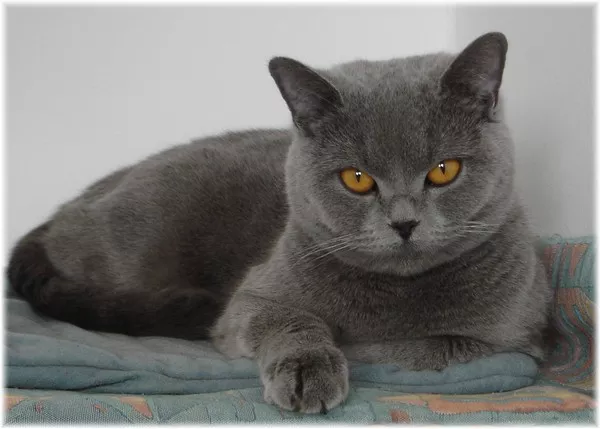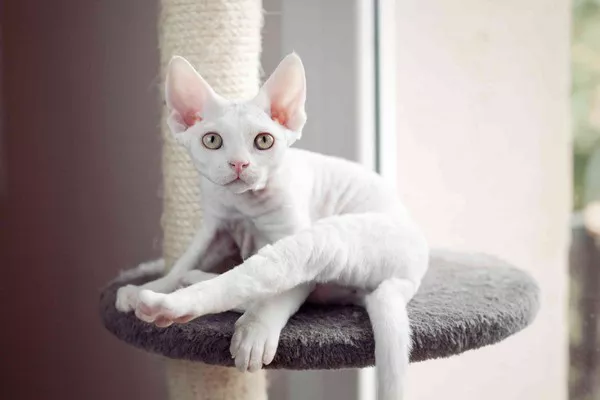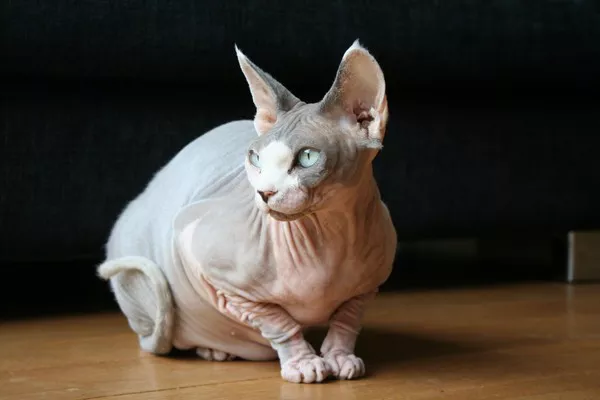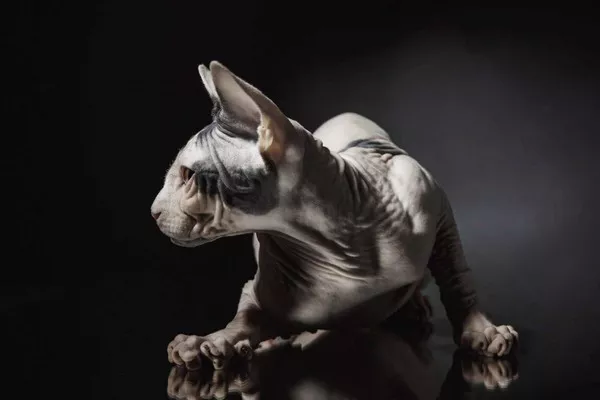Welcome to our comprehensive guide on how to take care of a British Shorthair kitten. As a proud owner of this adorable breed, it is essential to understand the intricacies of caring for your furry companion. This article combines years of experience, expertise, authoritativeness, and trustworthiness in feline care to provide you with all the information you need to ensure your British Shorthair kitten lives a healthy and happy life.
Understanding the British Shorthair Kitten
The British Shorthair is a captivating and popular breed known for its endearing looks and gentle nature. Originating in the United Kingdom, these cats have a long and storied history, dating back to ancient times when they were prized for their hunting abilities. Today, they are beloved for their plush, dense coats and distinctive round faces.
With a well-built, medium to large-sized body, the British Shorthair exudes an air of dignity and elegance. They possess powerful, muscular legs, and their large, expressive eyes are often copper, gold, or blue in color. Their charming round faces and sweet expressions further add to their appeal, making them irresistible companions.
In terms of personality, British Shorthairs are renowned for their calm and gentle demeanor. Unlike some more active breeds, they tend to be content lounging around the house, making them ideal for indoor living. They are known for their affectionate nature, forming strong bonds with their human families. Despite their reserved nature towards strangers, they can be quite sociable once they feel comfortable in their surroundings.
Preparing Your Home for the New Arrival
Welcoming a British Shorthair kitten into your home is an exciting experience, but it requires careful preparation to ensure a smooth transition for your new furry friend. Begin by designating a quiet and cozy space for your kitten to retreat to when feeling overwhelmed or tired. Provide a soft, warm bed and ensure they have easy access to a clean litter box in a separate area.
Invest in a sturdy scratching post to help them maintain their claws and prevent them from scratching furniture. British Shorthairs have a natural urge to scratch, and providing an appropriate outlet will save your furniture from their sharp claws.
Since British Shorthairs tend to be more laid-back, enrich their environment with toys and puzzles to stimulate their minds and prevent boredom. Interactive toys, such as puzzle feeders, can keep them mentally engaged and prevent them from becoming overweight due to inactivity.
Nutrition and Feeding Guidelines
A balanced and nutritious diet is crucial for the overall well-being of your British Shorthair kitten. Begin by feeding them the same high-quality kitten food they were consuming with the breeder or shelter. If you wish to switch their diet, do so gradually to avoid upsetting their sensitive digestive system.
Kittens require more calories and nutrients than adult cats to support their rapid growth and development. Look for kitten-specific food that contains essential nutrients like protein, taurine, and omega-3 fatty acids. Ensure that the food is appropriate for their age, and monitor their weight and condition regularly to make any necessary adjustments.
Water intake is equally important; make sure your kitten always has access to fresh, clean water. Provide water in a shallow bowl or a cat fountain, as some cats prefer running water.
Health Care and Veterinary Visits
The health of your British Shorthair kitten should be a top priority, and regular veterinary check-ups are essential. Schedule an appointment with a reputable veterinarian shortly after bringing your kitten home to assess their overall health and discuss vaccination schedules.
Vaccinations protect your kitten from several potentially life-threatening diseases, such as feline distemper and respiratory infections. Your veterinarian will provide a vaccination plan tailored to your kitten’s age and risk factors.
Additionally, discuss parasite prevention with your vet. Kittens are prone to internal and external parasites, such as worms and fleas. Your veterinarian will recommend suitable preventive measures to keep your furry friend safe and healthy.
Grooming and Coat Care
The British Shorthair’s plush and dense coat requires regular grooming to keep it in optimal condition. Fortunately, their short fur is relatively low-maintenance, but brushing them once or twice a week helps remove loose hairs and reduce shedding.
Invest in a high-quality cat brush or grooming mitt to make the process enjoyable for both you and your kitten. Regular grooming also prevents hairballs, a common issue in long-haired breeds.
British Shorthairs tend to be good self-groomers, but they may need extra assistance during shedding seasons. Pay special attention to their grooming during these times to keep their coat healthy and avoid matting.
Apart from coat care, dental hygiene is equally important. Brush your kitten’s teeth regularly using a feline toothbrush and toothpaste. Dental treats or toys designed to promote oral health can also complement their dental care routine.
Trimming your kitten’s nails every few weeks is essential to prevent overgrowth and discomfort. Invest in a pair of cat nail clippers and get your kitten accustomed to the process from a young age to make nail trims stress-free for both of you.
Exercise and Mental Stimulation
Though British Shorthairs tend to be less active than some other breeds, they still require regular exercise and mental stimulation to keep them healthy and happy. Interactive playtime with your kitten not only fosters a strong bond between you but also helps them release excess energy.
Use a variety of toys to keep playtime exciting and engaging. Feather wands, interactive laser pointers, and puzzle toys are all great options to stimulate your kitten’s natural hunting instincts. Rotate toys regularly to maintain their interest.
When playtime is over, provide cozy spots around your home where your British Shorthair can relax and observe their surroundings. Cats are known for their love of high places, so consider installing cat shelves or a tall cat tree for them to climb and perch on.
Socialization and Training
Socialization is a critical aspect of raising a well-adjusted and sociable British Shorthair kitten. Begin introducing them to various sights, sounds, and experiences from an early age. Expose them to different people, especially children and other pets, in a controlled and positive environment to help them develop confidence.
Use positive reinforcement training techniques to encourage desirable behavior. Reward your kitten with treats, praise, or affection when they exhibit good behavior, such as using the litter box or scratching on appropriate surfaces.
Remember that British Shorthairs respond well to patient and gentle training. Avoid harsh punishments, as it may lead to fear and anxiety.
Understanding Your British Shorthair’s Body Language
Understanding your kitten’s body language is vital for effective communication and building a strong bond. Pay attention to their facial expressions, tail position, and vocalizations to decipher their feelings and needs.
A relaxed and content British Shorthair will have their ears facing forward, eyes half-closed, and a gently swaying tail. On the other hand, flattened ears, dilated pupils, and an arched back indicate they may be feeling scared or threatened.
The position of their tail is also significant. A gently wagging tail usually signifies happiness, while a puffed-up tail is a sign of agitation or fear.
Conclusion
Congratulations! You’ve now acquired comprehensive knowledge on how to take care of your British Shorthair kitten. Armed with experience, expertise, authoritativeness, and trustworthiness, you are well-equipped to provide your furry companion with a loving and nurturing home. Remember, raising a happy and healthy British Shorthair requires time, patience, and dedication, but the love and companionship you’ll receive in return will make it all worthwhile. Cherish every moment with your feline friend and ensure their well-being throughout their life journey. Happy pet parenting!



























